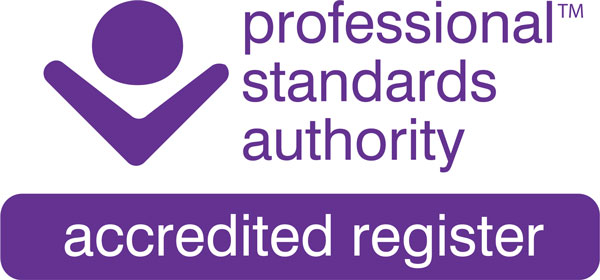Teaching that works: using the human givens in the classroom
Teacher trainer Andy Vass shows how knowledge and application of the human givens approach could help hard-pressed teachers reduce stress and improve the climate in class.
WITHIN staffrooms around the country’s schools, stress levels are high. At the same time as being understaffed and correspondingly overstretched, teachers are struggling to cope with an increasing workload brought about by a steady flow of new initiatives, rafts of additional targets, a (still) overly prescriptive curriculum which restricts professional autonomy and the incessant quest for higher and higher standards accompanied by endless testing. Set within the context of increasing challenging behaviour from children (a report from Ofsted, the Government’s standards watchdog, shows a rise over the last three years in the number of schools “where behaviour is regarded as unacceptable”), and their parents in some cases, the question arises, “Why would anyone want to be a teacher now?”
Why indeed? A report last year from the ‘think tank’ Demos pointed out that 40 per cent of those who enrol in initial teacher training don’t enter the classroom and, more worryingly, that between a third and a half of graduates who actually complete teacher training leave the profession within the first five years. Add these figures to the high age profile of the profession — around 160,000 are due to retire over the next decade— and a potential disaster is looming.
One of the reasons cited by teachers in the Demos report for leaving the profession early was their concern over the limited opportunities for professional autonomy. This is hardly surprising to anyone familiar with the human givens approach, since one of the ‘givens’ of human nature is the need to feel a sense of autonomy — the opportunity to experience self determination. While teachers experience the process of change as a stream of externally imposed and often badly managed initiatives which they have little opportunity to shape and which do not always reflect the needs of the learners, the challenges facing education will remain unsolved.
 Another major reason given for leaving the profession (and this is not just confined to those at the start of their careers) is the high level of stress brought about by the demands of managing increasingly challenging and disruptive behaviour from students, which inhibits the learning process and diminishes the level of job satisfaction.
Another major reason given for leaving the profession (and this is not just confined to those at the start of their careers) is the high level of stress brought about by the demands of managing increasingly challenging and disruptive behaviour from students, which inhibits the learning process and diminishes the level of job satisfaction.
Complex issues cannot be solved overnight. Clearly, a coherent, long term approach that extends beyond the life of any one parliament, and is not subject to any one political agenda or ideology, is essential. But there is the opportunity to begin to make progress on the second issue (increasing teachers’ confidence in the management of children’s behaviour) because it can be approached from the perspective of the human givens —the knowledge and evidence that has emerged about how humans learn and the basic needs which, in this context, have to be met if we are to create the most effective climate for both teachers and children to thrive in.
No training in how to connect
For the past five years, in addition to working in schools to support students at risk of exclusion, I have been providing in-service training in behaviour management to schools and local education authorities. I have worked alongside colleagues in modelling skills or leading training sessions in over 500 schools, and the anecdotal but strong evidence I have accumulated is that the stress emerging from difficulties in managing behaviour affects all teachers, even the most experienced. However, it is the newly qualified teachers who generally face the sternest challenge with the least preparation and it is these teachers who are leaving the profession early in large numbers.
Over the past two years I have surveyed, within the context of providing additional professional development, all newly qualified teachers in primary and secondary schools in six local education authorities. I wanted to find out how much information and skills training they received in classroom management during the teacher training provided as part of their course rather than during placements in schools. I discovered that the average length of time devoted to the essential skills of connecting to, communicating effectively with and managing the behaviour of children in a positive way was one and a half hours, over the space of a year. When I asked how effective that information was, in the light of actually beginning to teach, an overwhelming majority rated it as either poor or unhelpful.
Thirty years ago, I was given a piece of advice during my own teacher training course which was intended to help me establish my ‘control’ over my future classes: “Don’t smile until Christmas! Show them who is boss from the word go. Start off hard and then ease off when they know who’s in charge.” One would have thought that such ridiculous advice would have no part in today’s teacher training? Unfortunately, as I learned at a recent workshop attended by over a hundred newly qualified teachers, this approach is still being offered as ‘wisdom’ to impressionable graduates.
Manage but not control
Teachers cannot control the behaviour of children. Effective practitioners manage or influence the behaviour of their classes. The only point at which individuals can have influence on anyone else is when they have established rapport with them. How connected would a person be if they steadfastly refused to smile at anyone else for three months! Further, since the vast majority of the data processing in the brain attends to non-verbal aspects of communication, what kind of modelling process would a teacher be creating by showing no humour or enjoyment in being in the classroom?
No one would deny that children need clear and unambiguous boundaries set. Not only is this an essential part of meeting other givens such as security and social connection but also helps them to ‘belong’ to the learning community of the class or school. Smiling, being pleasant, friendly and connecting to children is not incompatible with setting boundaries and saying “No” when necessary. In fact the two things complement each other.
I believe, as do many teachers, that initial teacher training has become obsessively focused on the content of the curriculum to the extent that we commonly talk about ‘delivering’ the curriculum to children as if it were some kind of commodity. You can deliver milk, mail and newspapers but you can’t deliver learning. Teaching and learning occur most naturally and therefore most effectively within human interactions. Ultimately, the quality of those interactions will determine the emotional climate of the classroom and the quality or effectiveness of the learning.
 If the majority of training relates to what people should be teaching as opposed to how to create the most effective climate in which to teach it, new teachers begin at a distinct disadvantage. It is not hard to see why many become overwhelmed when confronted with even ‘normal’ group behaviours, when they have so few skills and strategies to call on.
If the majority of training relates to what people should be teaching as opposed to how to create the most effective climate in which to teach it, new teachers begin at a distinct disadvantage. It is not hard to see why many become overwhelmed when confronted with even ‘normal’ group behaviours, when they have so few skills and strategies to call on.
Indeed, from my survey, it became clear that trainees were most frustrated by tutors’ failure to answer satisfactorily when asked questions such as, “What do you do when a child refuses to do what you say?”, “How do you stop children from keeping on chatting?” or “What do you do if a child denies doing something naughty, even though you’ve just seen them do it?” Most often, they were either directed to a book or told that ‘it’ comes with experience.
However, even many experienced teachers are finding it increasingly tough to manage behaviour — largely because of the loss of autonomy mentioned earlier — and are looking to acquire additional skills. My personal view is that there is a ‘knowledge gap’ in teaching: a gap I define as the difference between what we now know from recent advances in scientific and psychological knowledge about humans and their behaviour, and what is taught to teachers that subsequently influences their practice in class.
The vast majority of teachers in this country are in their late 40s or early 50s, and the knowledge I am talking about wasn’t around when they trained. But what we know now, for example, about the significance and influence of language and the role that emotions and, in particular, emotional arousal play in affecting our actions, should be a core component of teacher training. Serving teachers who trained prior to the availability of this information should have a clear programme of continuing professional development to allow the information and knowledge to be integrated into existing practice and enhance the level of skill they possess.
Attention seeking
Since behaviour in all its manifestations is the way people attempt to get their emotional needs met, an understanding, and application, of the human givens approach has a profound part to play in effective teaching. For any strategy to be effective in managing or influencing the actions of children in class it has to help them meet, as far as possible, the givens with which nature endowed us. It may be helpful to look at a few examples of this.
We know now, for instance, that humans — and more especially children — have a powerful need for attention; that any attention is better than none and that a child will do whatever he or she has to do, in order to meet the need for it. Teachers need to be aware of the equation of attention giving — that it is more constructive to emphasise what children do well than to correct all that they do wrong. On average, there should be five positive comments for every negative one a child receives. There are many ways to give positive attention, including greeting children individually, using their first names and engaging in chit-chat about the football team certain children are known to support or eliciting opinions about the band that is currently number 1 in the charts.
 Too avid attention seekers can effectively be held in check if teachers acknowledge their need and in effect give them attention by ‘ignoring’ them: “Who can answer this question? Stuart, I’ll come to you after I’ve asked three other people first.” Stuart then knows he will receive attention soon but it is attention for waiting rather than interrupting. The other important aspect is that because the aim is to meet the need for attention in a positive way, it is preventive, which is always more effective than having to react to poor behaviour.
Too avid attention seekers can effectively be held in check if teachers acknowledge their need and in effect give them attention by ‘ignoring’ them: “Who can answer this question? Stuart, I’ll come to you after I’ve asked three other people first.” Stuart then knows he will receive attention soon but it is attention for waiting rather than interrupting. The other important aspect is that because the aim is to meet the need for attention in a positive way, it is preventive, which is always more effective than having to react to poor behaviour.
The need for attention can be powerfully and productively met when older children are encouraged to help out in classes of younger children. This is particularly effective when children who have behaviour or discipline problems of their own are the ones invited to be ‘mentors’, thus absorbing the message that they are seen as capable of setting a good example for a younger child and that they possess skills and personal qualities that are valuable and which transcend any behaviour difficulty they may be experiencing at the moment.
Sometimes, creating a project or setting a task that requires a range of skills effectively helps meet the need for attention of those who would normally be frustrated by the demands of a narrowly presented curriculum and looking for less appropriate means of meeting their attention needs. Instead, they work as team members, contributing their particular skills as an organiser or a timekeeper or a recorder or whatever they excel at. Attention then comes from success and cooperation. Such an approach also helps to meet the need for social collaboration.
Ways to create autonomy
When we can recognise the given that people always want some determination over and input into what they do, we can work with this basic need instead of against it. Even though the requirement to follow a narrowly prescribed national curriculum has removed much of the choice from what is taught, teachers can still build some fulfilment of the need for autonomy into the way that they teach. A classic textbook method for teaching the process of photosynthesis, for instance, comprises reading the text, looking at a diagram and then answering set questions to test comprehension. But this provides no opportunity to engage with the learning nor does it afford the chance to embrace different learning preferences.
 Effective learning requires the learner to do something actively to help process the information and to consider the information from a range of perspectives instead of just receive it. So a teacher could choose instead to provide just the diagram and ask the students to devise from it what they think the text would say, or vice versa; or students could be given the answers to the questions and asked to work out what they think the questions might have been; or they could discuss in groups the eight key points they consider vital to include in any account of photosynthesis. In this way, they come to ‘own’ their learning. The feeling of autonomy generated by the choices of activity is more likely to engage students and develop in them a sense of flow, which in turn reduces the likelihood of inappropriate behaviour.
Effective learning requires the learner to do something actively to help process the information and to consider the information from a range of perspectives instead of just receive it. So a teacher could choose instead to provide just the diagram and ask the students to devise from it what they think the text would say, or vice versa; or students could be given the answers to the questions and asked to work out what they think the questions might have been; or they could discuss in groups the eight key points they consider vital to include in any account of photosynthesis. In this way, they come to ‘own’ their learning. The feeling of autonomy generated by the choices of activity is more likely to engage students and develop in them a sense of flow, which in turn reduces the likelihood of inappropriate behaviour.
Much of the conflict that occurs in classrooms results from so called ‘power struggles’ which in fact are simply attempts to gain a sense of autonomy or status. Understanding that this too is a given enables teachers to distance themselves from the concept of trying to ‘control’ situations, which inevitably leads to conflict and failure, and instead to build in the element of choice by means of the language they use in managing behaviour.
Dealing with power struggles
There will be a big difference in the impact of — and therefore the reaction to — each of the following statements:
“Darren, I’ve told you twice to stop talking. If you do it again then I’ll move you over here on your own.”
“Darren, the instruction is to work silently. If you choose to keep talking, you’ll be choosing to sit on your own over here. If you need my help, let me know. Thanks.”
(Try saying them out loud yourself and notice differences in tone of voice and your own likely reaction to being spoken to in these ways.)
Building the language of choice into a teacher’s approach provides a clear way of helping children take responsibility for their behaviour. Even ‘binds’ (questions which appear to be a choice but which effectively bind the person to a particular outcome), often used in therapeutic settings, have their place in the classroom: “Do you want to do the questions before the diagram or after?” “Would you prefer to stay in class and calm down or wait outside the room?”

Choice is vital to the management of a class and teachers can reap enormous benefits in terms of behaviour management if they keep highlighting the fact that children are making choices. If a child who previously had been arguing is now working quietly, the change can be pointed out: “Thanks for choosing to settle down, Azeem.” It is a valuable technique for reinforcing good behaviour: “Jenny, how come you chose to search out all this information from the internet and make your project so great?” In human givens terms, such a comment invites children to go into their ‘observing selves’, the rational, analysing, part of the brain, and reflect on the fact that they themselves make the choices which enable them to achieve whatever it is that they want to achieve.
Emotions make us stupid
One of the most significant pieces of information underpinning the human givens approach is that high levels of emotional arousal make people ‘functionally stupid’ (to quote Joe Griffin’s memorable phrase). High levels of emotional arousal lock the brain into one-dimensional thinking and consequently our ability to rationalise and entertain different perspectives is drastically inhibited.
When teachers find themselves engaged in power struggles, which by their very nature are emotionally arousing, not only the children but they themselves are less able to see and react responsibly.
For instance, a teacher may challenge a boy who is wandering around the classroom, interrupting others when he should be working, and receives the reply, “I’m only getting a pencil,” (said very defensively). If the teacher responds to the tonality and thinly veiled hostility in the voice by saying, “Don’t be silly! It doesn’t take that long to get a pencil!”, rapport between teacher and child is instantly lost because the teacher has failed to see that the child’s response was merely an attempt to save face and minimise embarrassment at being caught out and maybe told off in public. Now both teacher and child are emotionally aroused and defensive, each equally keen to save face.
Much more effective is a response which devolves the power, allowing the perpetrator to retain his sense of status by having his actions, or the reasons behind them, validated, yet achieves the desired ends: “Yes, you do need a pencil for this. Now that you have got one, back to work now, thanks. I’ll come and check it in a minute.” (A teacher may wish to address the rudeness later, and in private, when the emotional heat has subsided.) As the thinking part of the brain is inhibited when emotions are high, it follows that learning cannot be effective if high levels of conflict or stress exist (often a characteristic of reacting to rather than managing behaviour in class) and therefore all strategies for managing a classroom should have as their first criteria the reduction of emotional arousal.
I hear you
I know from my own contact with many hundreds of new teachers that this is not widely known, let alone explained in training. This means that simple skills such as reflective listening are not taught. Yet reflective listening — the ability to let someone know that their message has been understood — is a core skill in lowering emotional arousal. Without this skill, interactions between people who may not share the same viewpoint are likely to trigger high levels of emotional arousal. How often do children in class feel that the teacher hasn’t understood their perspective? How commonly do comments such as “It’s not fair!” or “Other people do it too!” punctuate attempts to redirect children to appropriate behaviour?
Reflecting both the child’s emotions and the content of what they are saying helps build rapport and lower arousal: “Nadine, I can see you’re a bit annoyed because you think I haven’t given you a chance for your side of the story. When I’ve set the class working, then we can talk calmly over there.”
Putting it another way
Emotional arousal can also be lowered using the technique of reframing ideas and beliefs — helping a person gain additional, more helpful perspectives on things, when they are stuck in negative thinking. One important element of reframing is to reflect back information with a slight ‘twist’ that gives a perceived difficulty a transient status: “Mr Smith, I can’t do this!” “It’s good you chose to ask for help, Jade. Now, which bit can’t you do yet?”
In this brief exchange, the teacher begins to turn a potentially negative feeling into a positive response as he reframes Jade’s comments, firstly as a positive choice ie to seek help, and then begins to reframe the difficulty by the words ‘bit’ (some of it is understood) and ‘yet’ (presupposing that Jade will be able to do the work soon).
The language of influence
An understanding of the subtleties of language and the way in which the brain processes it should be part of every teacher’s repertoire. It is a simple truth that everything we say will have an influence over children in our classrooms. We must, therefore, ensure that our words have a positive influence and in as many ways as possible seek to engage human beings’ innate resources for helping meet our needs.
The vast majority of teachers are hugely committed and want to do their very best for the children they teach. Yet, if one were to eavesdrop into many classroom conversations, a lack of knowledge about presuppositions in language would be evident. Presuppositions are the taking of something for granted in the way that a communication is phrased. Their impact cannot be ignored because they connect with the brain at an unconscious level. Consider, for instance, unhelpful presuppositions: “What have you done now?” (Oh, it’s you again); “What else could you add to the picture?” (It isn’t good enough); “See, you can behave well when you try!” (You’re not useless after all, so why don’t you try!)
Conversely, presuppositions can be used powerfully for positive good: “I wonder who’ll answer the first question” (somebody will, and it could be you); “Next time you try this, it’ll be easier” (there’ll be a next time and it will definitely get easier from now on); “How pleased are you with this story?” (the story is pleasing).
Rapport building
Skilled teaching leads to group rapport — when all pupils are in a state of flow, their interest captured and their attitudes relaxed, because they are not fearful of being put on the spot or shouted at or humiliated. In such a state, they are capable of learning and teachers are capable of teaching. A knowledge and understanding of the human givens is not a magical way of achieving this in every case. Many children experience significant psychological difficulties or bring into class patterns established from their experiences outside school that make life extremely challenging for teachers and their peers alike. It is not possible to respond to the needs of absolutely every student at all times within a single classroom and there will always be the need for specialist support and intervention beyond the classroom especially with the present inclusion agenda. However, when teachers feel frustrated or powerless or drawn to confrontation and conflict with students, rapport and therefore influence islost and no one gets their emotional needs met.
I would argue strongly, from my own experience and the feedback from many hundreds of teachers in all phases of education, that having an increased range of strategies which are compatible with the scientifically validated information on which the human givens approach is based significantly reduces the likelihood of those situations occurring. It also assists us in recognising that it is what we do that has the most influence on the climate in our own classrooms.
Spare capacity
Teachers could also benefit enormously from understanding and acting upon the fact that they can only give to others if they also take care of themselves. Nothing will change the fact that teaching is stressful, but there are simple psychological techniques for making it less so. A simple breathing technique — breathing in to the count of 7 and out to the count of 11 — done just before class or at difficult moments — can help lower stress levels instantly.
Listening to music between classes, to calm down or liven up, can be helpful. So can engaging with the notion of pattern matching: photos of loved ones or fondly remembered occasions placed on the desk or in a personal organiser can create a lift every time they are looked at. Most importantly, teachers need to learn to take time for themselves — to make some space at break times when they aren’t thinking about the job.
They can also usefully apply reframes to their own reflections about their work. Instead of thinking in despair, “I’m not handling 4R/7K/9B at all well!”, or “I’ve messed up my lessons today”, simple reframes on the lines of “I haven’t got to grips with this class as well as I want to yet” or “I can improve the way I’m teaching such and such tomorrow” could go far to reduce much teacher burnout.
To explore all the areas in which a knowledge and understanding of the human givens can benefit the effectiveness of teachers is beyond the scope of this article. For me, however, the ‘organising idea’ it represents has provided the evidence for an approach which I have long been teaching and have instinctively known to be right. Quite simply, if as teachers we work in line with the way people naturally function, we will always be more effective, and strategies that are congruent with the human givens will always be the most successful.
ANDY VASS has taught for 27 years and combines work in schools with training and consultancy. He has held workshops for over 450 schools and local education authorities, which combine highly practical behaviour management skills with new insights into language and powerful communication. He is a therapist and member of the European Therapy Studies Institute. As well as writing articles for the Times Education Supplement, he is co-author of Confident Classroom Leadership, Creating Winning Classrooms, Teaching with Influence, Talking Possibilities and Strategies to Close the Learning Gap. He is a consultant to the Department for Education and Skills on a national programme for behaviour management at primary and secondary phases.
This article first appeared in the Human Givens Journal – Vol 9, No. 3 (2002)
Back issues available – each issue of the HG Journal is jam-packed with thought-provoking articles, interviews, case histories, news, research findings, book reviews and more, with no advertising. If you find the articles, case histories and interviews on this website helpful, and would like to support the human givens approach, you can buy a back issue today, they’re available in PDF and print format.

